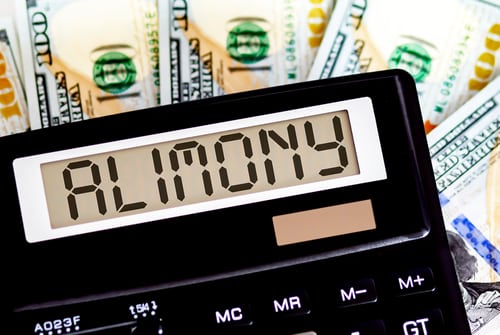As a false imprisonment lawyer located near Charleston, South Carolina, I’ve written this article to educate consumers and shoppers about their rights when they’re falsely accused of shoplifting or theft. For example, imagine you’re shopping in Wal-Mart, you buy a bag of Doritos and a Coke, and a security guard stops you in front of other customers, accuses you of shoplifting, searches you, and locks you in a room until the police arrive. Now imagine you’re depositing money at a bank and as you exit the bank you’re tackled to the ground by a swarm of police officers pointing shotguns and assault rifles at your head because the bank called 911 and reported a robbery. These are real-life examples of false arrest and false imprisonment we’ve handled in South Carolina.
Essentially, when a shopper is wrongfully detained or arrested, the shopper has several potential civil claims against the store including (1) false arrest and imprisonment; (2) malicious prosecution; (3) civil assault and battery; and (4) defamation.
What is False Arrest & False Imprisonment in South Carolina?
False imprisonment is the unlawful detention or restraint of another’s freedom of movement, for any length of time, without justification or consent. There are four principal elements in a false imprisonment claim:
- The confinement must be without the victim’s consent. Confinement can occur in a number of ways, including using a physical barrier (locking someone in a room) or by threats of force.
- There must be an intent to confine the victim.
- The victim must be aware of the confinement or be harmed in some manner by it.
- The victim must not be aware of any reasonable means of escape.
Many stores in South Carolina have a policy that they won’t stop a person from shoplifting unless the person actually exits the store without paying for the merchandise. However, this type of policy isn’t required by law, and not every store follows this type of “exit” policy. Instead, many stores rely on what is known in South Carolina as the “shopkeeper’s privilege. The “shopkeeper’s privilege” means that a shopkeeper (a merchant) may detain a person briefly inside or outside of the store if:
- The merchant delays the shopper in a reasonable manner and for a reasonable time to investigate, and
- The merchant had reasonable cause to believe that the person committed the crime of shoplifting.
An example of “reasonable cause” is when a shopper conceals merchandise while they are in the store. Under South Carolina law, if you conceal merchandise while you’re shopping (such as putting items in your pockets or your purse), then there is a legal inference that you had the intention to steal those items. However, if you’re stopped by store employees or security BEFORE you’ve had a chance to make it past the checkout counter, then there’s a good chance that any criminal charges against you will be dismissed and that you’ll have a civil claim against the store for false imprisonment and other claims.
When you are shopping, it’s never wise to carry merchandise in your pockets or in your purse. If you can help it, always use a store cart, a basket, or a shopping bag to carry your items.
What is Malicious Prosecution in South Carolina?
To prove malicious prosecution in South Carolina, a civil plaintiff must show:
- The institution or continuation of judicial (civil or criminal) proceedings;
- By, or at the insistence of, the defendant;
- Termination of such proceeding in plaintiff’s favor;
- Malice in instituting such proceedings;
- Lack of probable cause, and
- Resulting in injury or damage.
In South Carolina, malice is defined as “the deliberate intentional doing of an act without just cause or excuse.” Malice doesn’t necessarily mean that the store acted out of spite. Instead, malice may be inferred if the store lacked “probable cause” to prosecute you for theft or shoplifting.
Probable exists when “the facts within the prosecutor’s knowledge would lead a reasonable person to believe the plaintiff was guilty of the crimes charged.” To decide whether there was probable cause, the court must consider the facts from the store’s point of view. In other words, the question isn’t what the facts were, but what the store (the prosecuting party) honestly believed them to be.
To prove that the proceedings “terminated” in your favor, you have to show that the criminal charge was either dismissed or that a judge or a jury found you not guilty at trial. If you plead guilty to a lesser charge or the charges are dismissed after you completed pretrial intervention (PTI), then for purposes of a malicious prosecution claim, the proceedings DIDN’T terminate in your favor.
Civil Assault & Battery in South Carolina
You can sue someone, including a store, in civil court for assault and/or battery. Assault and battery are two separate claims. Under South Carolina law, an assault is an act (not just threats or words) intended to cause an apprehension of harmful or offensive contact. For example, if a store security officer points a weapon at you and tells you to freeze, that’s an assault.
A battery is the touching of another person in a harmful or offensive manner without the person’s consent. For example, if a store security officer grabs you by your arm and forces you to the back of the store, that’s a battery.
Defamation in South Carolina
To prove defamation in South Carolina, you must show that another person, with malice, made a false statement about you to another person. In false arrest cases, these statements typically are made when a store employee or security verbally accuses you of stealing in the presence of other store employees, other shoppers, or reports you to the police. Verbal defamation is called “slander.” Because these types of statements involve an accusation of a crime, these statements are considered “slander per se” which means that the court automatically presumes you have suffered damages of some sort.
Damages for False Imprisonment in South Carolina
There can be many types of injuries alleged in cases involving false arrest, false imprisonment, malicious prosecution, assault, battery, and defamation. Some examples include damages for loss of freedom and liberty, humiliation and embarrassment, mental anguish, and physical injuries depending on how you were handled by store security, the police, or the jail. Punitive damages can also be awarded against a store owner or its employees.
Real-Life Examples of False Imprisonment in South Carolina
Remember those examples I described at the beginning of this article? Those stories aren’t make-believe; those are actual South Carolina cases of false arrest and false imprisonment that we’ve handled.
In Walterboro, I represented a client who was falsely detained by Wal-Mart because the store suspected that he was acting as a “lookout” to help another person who was shoplifting. Although my client had nothing to do with the shoplifter, my client was stopped at the checkout, accused of stealing in front of other customers, and locked in a room until the police came. Of course, the police didn’t arrest my client because he hadn’t done anything wrong. All my client wanted from Wal-Mart was an apology. Instead, Wal-Mart gave my client a “Notice to Trespass” through the police which barred my client from ever shopping there again. In the end, I sued Wal-Mart in Federal court, and the jury awarded my client damages of around $70,000.00. Wal-Mart refused to take responsibility for what they had done and they appealed the award to the United States 4th Circuit Court of Appeals in Richmond, Virginia. Fortunately, we won there too.
In another case, my partner Tom and I sued a bank in Sumter that falsely accused our client of robbing the bank. In a bizarre turn of events, a bank teller told others that she was being robbed by my client when, in fact, he was depositing a large sum of cash for his employer. One teller (who was unaware of what was going on) helped him make the deposit. Meanwhile, the other bank employees hid with customers in the bank’s vault while law enforcement and a S.W.A.T team surrounded the bank. As our client exited the bank with his deposit receipt in hand, he was taken down by a sea of shouting police officers who were armed with shotguns, assault rifles, and handguns. We sued the bank, and the bank settled confidentially before trial.
What Do If You’ve Been Falsely Accused of Shoplifting in South Carolina
At Futeral & Nelson, we have many years of experience defending criminal charges for theft and shoplifting AND bringing claims of false arrest, false imprisonment, malicious prosecution, civil assault and battery, and defamation. Contact the attorneys at Futeral & Nelson for a FREE consultation. We can defend you from the shoplifting or theft charge and help you with any potential civil claims against the store.











